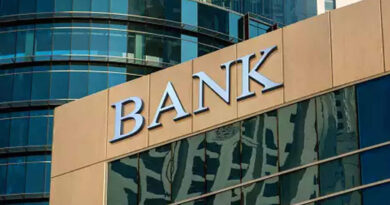There Will Be No Merger Of IIFCL In NaBFID
There will be no merger of IIFCL in NaBFID, the management said, there is no plan to merge.
IIFCL will not be merged with National Bank for Financial Infrastructure and Development (NBFID). This information was given by the IIFCL management on Tuesday.
The company’s MD PR Jaishankar said that there is no plan to merge IIFCL with the NBFID announced in the budget.
He said that the company has prepared its development plan. In this year’s budget, it was announced to set up NBFIDs for financing financial infrastructure.
There will be no merger of IIFCL in NaBFID: IIFCL has made a consolidated net profit of Rs 325 crore in the last financial year 2020-21, which is 350 percent more than the previous financial year.
IIFCL sanctioned a record loan of Rs 20,892 crore in the last financial year and disbursed Rs 9,460 crore. The company has also been successful in reducing NPAs.
The company’s NPA stood at 5.4 percent in the last financial year as against 9.75 percent a year ago.
The company is focusing on providing long-term loans for infrastructure projects related to road and railways.
The bad bank will buy NPAs of banks, many banks will have a stake, expected to come by the end of June.
The Finance Ministry has started finalizing the rules and regulations regarding the establishment of National Assets Reconstruction Company Limited (NARCL) ie Bad Bank.
The guidelines in this regard are expected to be implemented by the end of this month. Many public sector banks will have a stake in this bank.
It will buy its bad debt (NPA) accounts from banking companies and make arrangements for its recovery. This way financial institutions will not have to bear the burden of NPAs for a long time.
NARCL is conceptualized by RBI as a bad bank. This was announced by Finance Minister Nirmala Sitharaman in the Union Budget 2021-22.
Canara Bank will have the highest promoter stake with 12 percent in NARCL. In this, 51 percent stake will be held by public sector banks and 49 percent by private banking companies.




